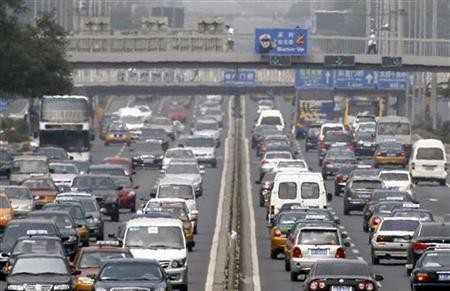The Chinese government is adamant that the reform that it wants to see with regard to the use of vehicles would be successfully implemented this year. The reform has been on the government's agenda for almost two decades now, with little success. Even though things may start changing now, the reform might still face some rough patches ahead.
The Chinese government wants to make sure that 2015 is the year when no reports of public vehicle misuse would be heard. The central government is also determined to cut excessive spending and reverse public discontent regarding corrupt officials.
A set of detailed guidelines released by the State Council in July 2014, which monitors the supply and use of government-issued vehicles, is expected to be implemented this year, and adhered to completely by the government officials, including local government bodies.
The central government is said to be right on schedule. It has reportedly implemented all the planned reforms and is now currently working on how to manage the surplus cars.
By being right on schedule, this means that all ranks below that of the deputy minister are now commuting to the offices, or at least not using official vehicles anymore. These officials are only allowed to use government-issued cars for emergencies as well as law enforcement causes. This also means that central government officials are now receiving their traffic subsidies ranging from 500 to 1,300 yuan depending on the posts they are occupying.
A civil servant claimed that the reform is not that difficult to adhere to.
"This is the first time we have received a travel subsidy. And it is better than the past because I've been driving my own car for meetings and the subsidy helps," a civil servant shared to the Xinhua News Agency.
On the other hand, local governments are also on their way to implementing these reforms completely. The officials have held several meetings in Jiangsu and Hubei provinces in Dec. 2014 regarding these reform plans and how to ensure their effective implementation.
Despite these progresses, however, the reform might face several problems in the future. Some government workers in Beijing complained of the difficulties they faced when applying to use government cars for official purposes because the number of public cars have now been curtailed.
"In the past if we needed to use official cars, we only needed to tell our team leader. But now we have to submit an application form to the department head, the head of the office and also the head driver. And it is generally forbidden to use the cars to go to the airport, train stations and colleges unless necessary. In those cases, we must apply to the discipline inspection commission of the agency," one official said.
Some also said that the subsidies are not enough.
"A subsidy of 500 yuan will just be enough to cover the expenses if I travel by taxi. If I drive, it will not cover the cost of the fuel and parking fees," another civil servant complained.




























